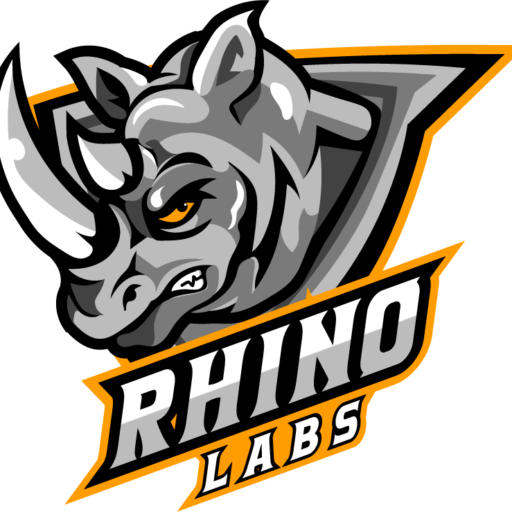Steroid
How Much Are Steroids Important to Grow Muscle-Rhino UGL
How Much Are Steroids Important to Grow Muscle?
When it comes to building muscle and increasing strength, the fitness community is divided on many topics. One of the most controversial subjects is the use of anabolic steroids. For some, steroids are seen as a quick and effective way to accelerate muscle growth, while others caution against their use due to potential health risks. So, how important are steroids when it comes to growing muscle? Let’s take a closer look at the role of steroids in muscle building and whether or not they are necessary for achieving significant gains.
Understanding Steroids and Muscle Growth
Steroids, particularly anabolic steroids, are synthetic derivatives of the male hormone testosterone. They work by enhancing muscle protein synthesis, promoting muscle growth, and speeding up recovery time after intense workouts. When individuals take anabolic steroids, they often experience rapid muscle development, strength gains, and improved athletic performance.
While these benefits may seem appealing, it’s essential to understand that steroids don’t work miracles on their own. A balanced diet, proper training, and enough rest are still key components in building muscle. In fact, steroids can only provide an edge when these foundational elements are already in place.
How Steroids Affect Muscle Growth
Steroids have the primary effect of increasing the amount of nitrogen retained in the body, which plays a crucial role in muscle protein synthesis. This process is essential for muscle repair and growth. Additionally, anabolic steroids can increase red blood cell production, which improves oxygen delivery to muscles and reduces fatigue, allowing for more intense and longer workouts.
In terms of muscle size, steroids can help bodybuilders and athletes gain muscle mass faster than they could through natural training alone. Steroids enhance the body’s ability to push beyond normal limits, making it possible to train harder, recover quicker, and develop larger muscles. This is why many competitive athletes and bodybuilders turn to steroids to maximize their performance and physical appearance.
However, it’s important to remember that steroids are not a substitute for consistent training and proper nutrition. They work best when combined with an effective workout routine, a diet rich in protein, healthy fats, and carbohydrates, and adequate sleep. Without these factors in place, steroids will not provide the muscle-building benefits many expect.
Do Steroids Make a Huge Difference in Muscle Growth?
The answer to this question depends largely on an individual’s fitness goals and the stage they are at in their muscle-building journey. For beginners or intermediate lifters, the impact of steroids may be less noticeable because their bodies are still capable of experiencing significant gains through natural methods. In these early stages, consistency with workouts and nutrition will yield impressive results without the need for performance-enhancing drugs.
For advanced bodybuilders and elite athletes, however, the use of steroids can provide an edge, allowing them to break through plateaus and achieve even greater muscle growth. However, this comes at a cost—both in terms of potential health risks and the financial cost of purchasing steroids. As such, steroids may be seen as a shortcut for those looking to gain a competitive advantage or those who wish to achieve rapid muscle growth in a short amount of time.
The Risks and Side Effects of Steroids
While steroids can certainly enhance muscle growth, they are not without risks. Many gym experts and healthcare professionals strongly advise against steroid use due to the wide range of potential side effects. These side effects can have long-lasting, even permanent, consequences on a user’s health. Some of the risks associated with anabolic steroids include:
- Cardiovascular Issues: Steroids can increase bad cholesterol (LDL) and lower good cholesterol (HDL), leading to higher risks of heart disease, strokes, and other cardiovascular problems.
- Liver Damage: Prolonged steroid use can cause liver damage, including liver toxicity, and increase the risk of liver cancer.
- Hormonal Imbalances: Steroids can disrupt the natural production of testosterone, leading to problems such as testicular atrophy (shrinking of the testicles), decreased sperm production, and infertility. Women may experience masculine traits such as deepened voices and excessive body hair.
- Psychological Effects: Some steroid users experience mood swings, aggression (often referred to as “roid rage”), anxiety, and depression. Long-term use can lead to addiction and dependence on the drug.
- Physical Side Effects: Acne, hair loss, and other visible physical changes can occur. In some cases, users may experience an increase in the size of breast tissue in men (gynecomastia).
Given these risks, many experts recommend considering all the long-term consequences before turning to steroids, especially when there are safer, natural alternatives.
Natural Muscle Building vs. Steroid Use
For those looking to build muscle without the use of anabolic steroids, a consistent, science-backed approach can still lead to significant progress. Natural muscle building is grounded in three key pillars: training, nutrition, and recovery.
1. Training: To build muscle naturally, strength training is essential. Progressive overload, where you gradually increase the weight or resistance used in exercises, is crucial for stimulating muscle growth. Compound movements like squats, deadlifts, and bench presses target multiple muscle groups, promoting overall muscle development.
2. Nutrition: Proper nutrition is one of the most important factors in building muscle. A diet rich in protein helps with muscle repair and growth, while healthy fats and carbohydrates provide the energy needed for intense workouts. Eating in a slight calorie surplus (i.e., consuming more calories than you burn) can also help fuel muscle growth.
3. Recovery: Giving your muscles time to recover is equally important. Muscles don’t grow while you’re working out—they grow during periods of rest, especially when you sleep. Ensuring adequate rest between workouts and getting 7-9 hours of sleep per night is key to maximizing muscle growth.
4. Supplements: While not as powerful as steroids, some legal supplements like protein powders, creatine, and branched-chain amino acids (BCAAs) can support muscle growth and recovery when paired with a solid training and nutrition plan.
Conclusion: Are Steroids Necessary for Muscle Growth?
Steroids certainly play a role in muscle growth, but they are not necessary for everyone. For most gym-goers and fitness enthusiasts, natural training, proper nutrition, and adequate recovery are more than enough to see significant muscle development. While steroids may offer faster results, they come with risks that should not be overlooked.
If you’re considering steroids to accelerate muscle growth, it’s essential to weigh the benefits against the potential health consequences. Always consult with a healthcare professional before making such a decision. For those looking for sustainable, long-term results, focusing on natural methods—training smart, eating right, and recovering well—is the safest and most effective approach to building muscle.
At rhinougl.is, we believe that dedication, consistency, and a holistic approach to fitness will always trump shortcuts. The natural way may take longer, but the results are healthier and more sustainable in the long run. Stick to your training, stay patient, and enjoy the rewarding process of building muscle naturally or with a bit of extra help!

